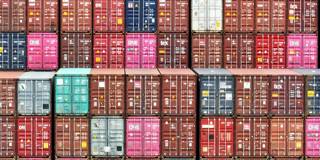Whereas free trade was once the central cause of progressive reformers seeking to combat entrenched interests on behalf of ordinary people, now it is the bête noire of both right-wing nationalists and the mainstream left. To understand why attitudes changed so radically, one must follow the money.
CAMBRIDGE – Few terms in economics are as ideologically loaded as “free trade.” Advocate it nowadays, and you are likely to be regarded as an apologist for plutocrats, financiers, and footloose corporations. Defend open economic borders, and you will be labeled naive or, worse, a stooge of the Communist Party of China who cares little about human rights or the fate of ordinary workers at home.
As with all caricatures, there is a grain of truth in the anti-trade stance. Growing trade did contribute to rising inequality and the erosion of the middle class in the United States and other advanced economies in recent decades. If free trade got a bad name, that is because globalization’s boosters ignored its downsides or acted as if nothing could be done about them. This blind spot empowered demagogues like Donald Trump to weaponize trade and demonize racial and ethnic minorities, immigrants, and economic rivals.
Nor is antipathy to trade the province only of right-wing populists. It also includes radical leftists, climate activists, food-safety advocates, human-rights campaigners, labor unions, consumer advocates, and anti-corporate groups. US President Joe Biden, too, has noticeably distanced himself from free trade. His administration believes that building a secure, green, equitable, and resilient US economy must take precedence over hyper-globalization. All progressives, it seems, believe that free trade stands in the way of social justice, however understood.

CAMBRIDGE – Few terms in economics are as ideologically loaded as “free trade.” Advocate it nowadays, and you are likely to be regarded as an apologist for plutocrats, financiers, and footloose corporations. Defend open economic borders, and you will be labeled naive or, worse, a stooge of the Communist Party of China who cares little about human rights or the fate of ordinary workers at home.
As with all caricatures, there is a grain of truth in the anti-trade stance. Growing trade did contribute to rising inequality and the erosion of the middle class in the United States and other advanced economies in recent decades. If free trade got a bad name, that is because globalization’s boosters ignored its downsides or acted as if nothing could be done about them. This blind spot empowered demagogues like Donald Trump to weaponize trade and demonize racial and ethnic minorities, immigrants, and economic rivals.
Nor is antipathy to trade the province only of right-wing populists. It also includes radical leftists, climate activists, food-safety advocates, human-rights campaigners, labor unions, consumer advocates, and anti-corporate groups. US President Joe Biden, too, has noticeably distanced himself from free trade. His administration believes that building a secure, green, equitable, and resilient US economy must take precedence over hyper-globalization. All progressives, it seems, believe that free trade stands in the way of social justice, however understood.